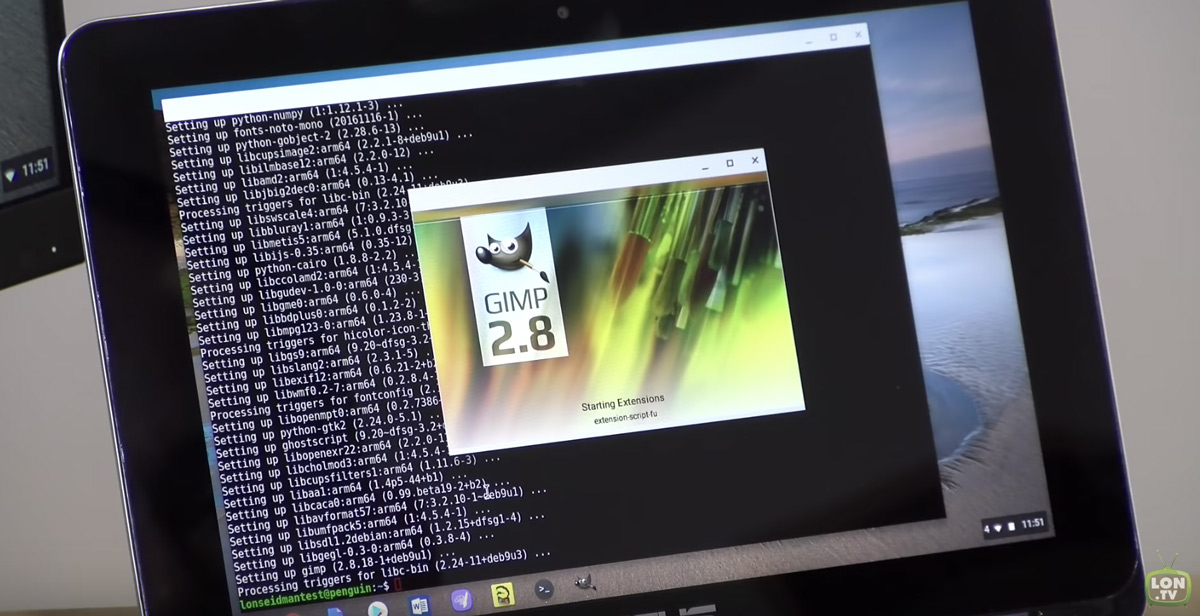If the ability to run desktop Linux apps on Chromebooks is something that interests you, but you’re yet to bite on buying a device to do it, it sounds like your patience has paid off!
Google has apparently said that every new Chromebook launched in 2019 will support Linux apps out of the box, that’s according to Android Police who are covering Google I/O 2019 happenings.
Linux Apps on Chrome OS (an initiative codenamed “Crostini”) made their formal debut last year when they entered beta with the release of ChromeOS 69.
The feature is still in beta as of the most recent Chrome OS release, v75, but is already proving popular with users, with particular appeal amongst developers.
“Linux Apps on Chrome OS will appeal strongly to developers”
When a Chrome OS user chooses to enable Linux Apps support they get access to a new Terminal app — which is where the fun begins.
Using this app they can download, install and run desktop Linux software (yes, GUI apps) as well as command line tools and other user-space utilities natively, inside Chrome OS, via the power of containers.
Not every app works, and of those that do, not all apps work well.
Improvements, such as hardware acceleration, better graphics support, and working sound, are in varying stages of completion.
But unlike a traditional virtual machine, Linux apps integrate with Chrome OS.
App shortcuts can be added to the app shelf or opened from the Chrome OS launcher, and Linux files and folders are accessible through the Chrome OS file manager.
Although an increasing number of recent-ish Chromebooks support Linux apps, many aren’t well suited to running it.
For the best experience (right now) a higher-end device, like the Acer Chromebook Spin 13 and pricey Google Pixelbook 2, is recommended.
Running an OS within an OS is less hassle on these models due to their ample RAM, Intel core-series processors and larger storage space.
But with news that every Chromebook model from this point forward will support the feature, one imagines that low and mid range Chromebooks may finally start to offer higher default specs.
Linux Apps add additional appeal to Chrome OS, which is also able to run regular web apps, progressive web apps, Chrome apps and Android apps.
Thanks Jim

